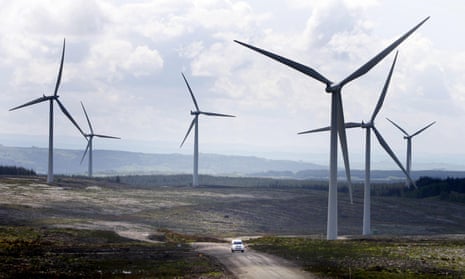China called on rich countries to “pay their debts” on climate change at global talks on Thursday, criticising developed countries for not doing enough to reduce greenhouse gas emissions and provide finance to help poor countries do the same.
The trenchant intervention by Xie Zhenhua, the minister who leads the Chinese delegation and a veteran of the UN climate negotiations, came as China faced increasing pressure to shift its stance on some of the key rules required to implement the 2015 Paris agreement.
He told a small group of journalists: “Developing countries are not comfortable or happy. [We need to] see if developed countries have honoured their commitments. Still some countries have not started their mitigation efforts, or provided financial support [to poor nations]. We strongly urge them to pay up on their debts.”
By contrast, he said, developing countries had been “very flexible and constructive” at the talks. One of the key sticking points at the UN negotiations in Poland is over how countries should account for their greenhouse gas emissions, and how their progress in meeting their commitments on curbing carbon should be measured and verified.
Developed countries prefer strict standards but developing countries have historically been allowed some leeway, in recognition that their governance structures and capabilities may lag behind.
But the EU and other developed countries are concerned that large rapidly developing economies such as China are not agreeing to adequate transparency in accounting for their emissions.
Xie said the talks were “deadlocked”, but maintained that China should continue to be treated as a developing country, and that developing countries should have flexibility over transparency rules.
“We need flexibility,” he said. “Developing countries have very varied capabilities. If more [financial and technological] support is given to developing countries, they will have more capabilities and stronger actions [on emissions].”
Claire Perry, the UK’s climate minister, who arrived on Thursday after the Tory party’s dramatic vote of confidence in Theresa May on Wednesday night, said she was making transparency a key focus of her efforts at the talks.
If no compromise can be reached, the talks may end this weekend without finalising the rulebook for implementing the Paris agreement, which was the key aim of these two weeks of negotiations.
Developed countries also came under heavy fire in other parts of the conference. A coalition representing scores of the poorest and most vulnerable nations called on them to raise their emissions-cutting targets, and separately the Pacific island states – acutely vulnerable to climate change – called for the world to abandon coal power generation.
“We call on all OECD countries to quickly phase out their use of coal by 2030 and for all other countries to phase out their use of coal by 2040,” Fijian prime minister Frank Bainimarama, the president of COP23, said. “There must be no expansion of existing coal mines or the creation of new mines.”
Pacific Rim powers Australia and the US have both this week said publicly they have no plans to begin phasing out coal-generated power. By contrast, Perry said the UK would have no unabated coal-fired power stations by 2025.
“The United States has an abundance of natural resources and is not going to keep them in the ground,” President Donald Trump’s international energy and climate adviser, Wells Griffith, told a US government-run panel discussion on fossil fuels.
Australia’s ambassador for the environment, Patrick Suckling, added: “Fossil fuels are projected to be a major source of energy for a significant time to come.”
Cook Islands prime minister Henry Puna told the Guardian the phase-out of coal was critical to the survival of Pacific island states. “We have made that call, it is not directed at any one country, but it applies to all. We know that coal power plants are a significant cause of the climate change we see affecting the whole world.”
The Pacific island states also called for the establishment of an international protection regime to protect people displaced by climate change.
Mohamed Nasheed, the former president of the Maldives and now leading the country’s negotiating delegation, said “four countries” – referring to the US, Saudi Arabia, Kuwait and Russia, the bloc resisting welcoming the IPCC’s 1.5C special report – were deliberately frustrating negotiations.
“Nothing’s happening. Absolutely nothing is happening,” he said. “You have this whole dictionary of words that has been brought into these climate conferences, then they talk about brackets, and we go round and round and round, and we don’t go anywhere.”
While at the political level, oil-producing and large emitting nations have resisted increasingly strident calls from several country blocs to announce new targets for deeper emissions cuts, inside the negotiating rooms, officials from countries such as the US and Australia are reported to be working constructively to progress discussions on a Paris agreement rulebook.
“Countries are negotiating in good faith, some in better faith than others, but there is progress,” Costa Rica’s minister for the environment and energy, Carlos Manuel Rodríguez, said.
